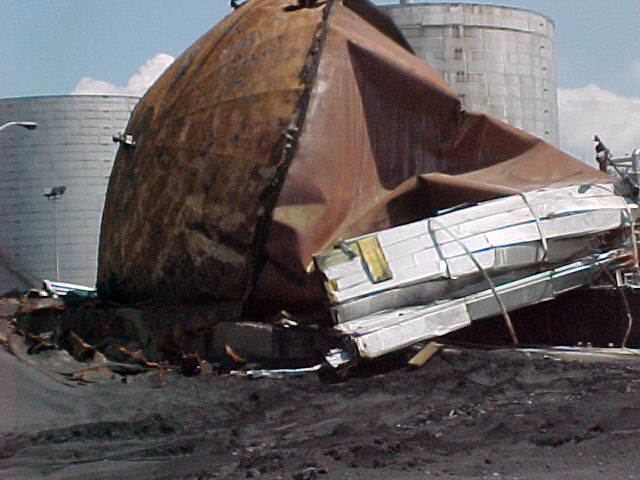News Release July 25, 2001 - Board Intensifies Investigation of Motiva Acid Tank Failure, Fire; Four Additional Investigation Team Members Deployed

<p><font class="BlackText">(Washington, DC - July 25, 2001): The U.S. Chemical Safety &amp; Hazard Investigation Board (CSB) has dispatched six investigation team members to the site of the catastrophic failure of a storage tank containing spent sulfuric acid at Motiva Enterprise's Delaware City (Del.) refinery. Eight people were injured in the release and accompanying fire. One contract employee is still missing. The team will carry on work begun after the incident by a CSB preliminary assessment team. The incident occurred during July 17th maintenance operations near the tank prior to the tank's failure, which released spent acid and flammable material, which ignited. Five contract employees were reportedly welding on metal catwalks above the tanks. An estimated 660,000 gallons of acid have been released so far, according to a new estimate from the company. Thousands of fish and crabs were killed when the acid reached the Delaware River. The company is attempting to remove acid from the remaining tanks, which may be leaking their contents, and they are building additional containment walls in an attempt to limit further off-site environmental damage. Access to the immediate area surrounding the incident location has been limited due to continuing hazards.</p> <p>On Monday Motiva Enterprises LLC said in a letter to several government agencies that the collapsed tank was &quot;overdue for inspection, had & open work order(s) to repair a hole in the tank,&quot; &quot;had been recommended for removal from and &quot;had previous vapor and liquid releases.&quot;</p> Obviously the CSB is extremely interested in the conditions that existed prior to this catastrophic failure,&quot; said Board Member Dr. Andrea Kidd Taylor. &quot;Our investigation team will be looking at, among other items, just what was known about the condition of the tank, the company's hazard evaluation process and the adequacy of their procedures,&quot; Taylor said.
Back to news